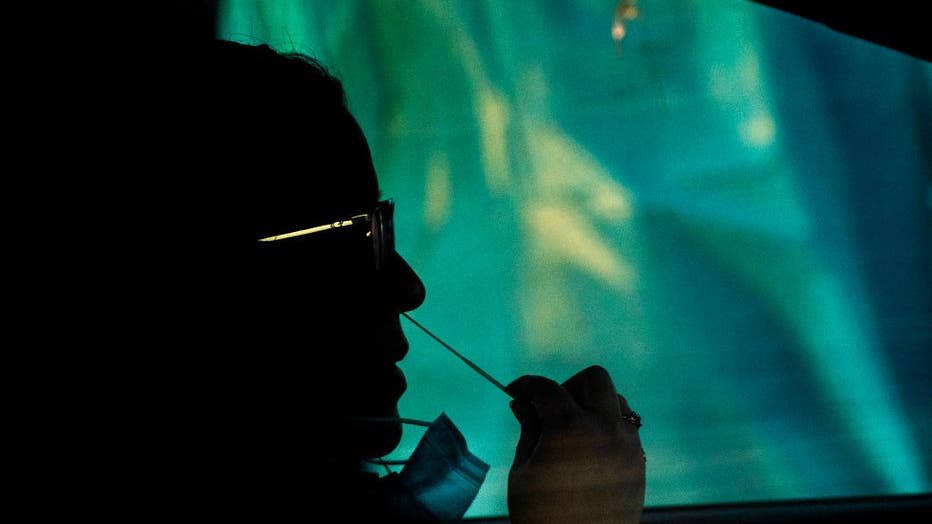Fake COVID tests: BBB warns of online scam to steal money, personal information
WASHINGTON - As new COVID-19 cases hit record levels due to the exponential spread of the omicron variant, demand for virus testing and at-home testing kits has also skyrocketed.
Some stores have even placed caps on the number of at-home COVID-19 tests people can purchase. And with such demand also comes scammers looking to take advantage of the situation, according to officials.
The Better Business Bureau, the Federal Trade Commission, and the U.S. Department of Health and Human Services Office of Inspector General all issued related statements this week about fake and unauthorized at-home COVID-19 testing kits being sold online and other related schemes.
Criminals end up stealing the victim’s money and personal information, the BBB warned, a nonprofit that works to improve marketplace trust. In some cases, scammers have appeared at testing sites and conducted fake COVID-19 tests on people standing in line "as a ruse to get their personal information."
"Scarcity often leads to potential scams for a product that doesn't exist, the compromise of personal identifiable information, or the increase of deceptive advertising," the BBB said in an alert.
In one scam, officials with the organization warned of robocalls that are sent out to consumers directing them to a website that looks like a clinic or medical supply company offering COVID-19 tests. In order to receive the test, a credit card or form needs to be completed with personal information.
The tests allegedly identify if a person has been infected with the virus, even if they have recovered. Some even promise results in 10 minutes and others are offered through a clinic, the BBB said.
"But in all versions, the person or website selling the test is short on details," the BBB said. "They aren’t willing or able to provide any information about how the test works, where it is sourced, and what laboratory processes it."
Don’t fall for it, officials warn. Such tests are not approved by the U.S. Food and Drug Administration and will not give accurate results.
"In fact, requestors may never even receive an actual test kit. Either way, scammers will have made off with the money and personal information," the BBB said.
How to avoid buying fake COVID-19 tests online and related scams
The U.S. Center for Disease Control and Prevention has a guide to testing for COVID-19, helping to explain the different tests currently available.
People seeking a COVID-19 test should check the FDA’s website for a list of approved tests and testing companies. The agency has lists of antigen diagnostic tests and molecular diagnostic tests.
"Not all COVID-19 antibody tests have been approved by the U.S. Food and Drug Administration (FDA), and their efficacy has not been determined," the FBI warned

FILE - A person self-administers a COVID-19 test as a health care worker wearing personal protective equipment waits to collect it for testing at Long Beach City College-Veterans Memorial Stadium on Dec. 9, 2020, in Long Beach, California. (Allen J.
It’s also wise to research the seller before buying a test, particularly if it’s from an unknown site. Search online for the website, company or seller’s name plus words like "scam," "complaint," or "review."
Colleen Tressler with the FTC’s Division of Consumer and Business Education also suggests paying by credit card.
"If you’re charged for an order you never got, or for a product that's not as advertised, contact your credit card company and dispute the charge," Tressler said.
This story was reported from Cincinnati.

